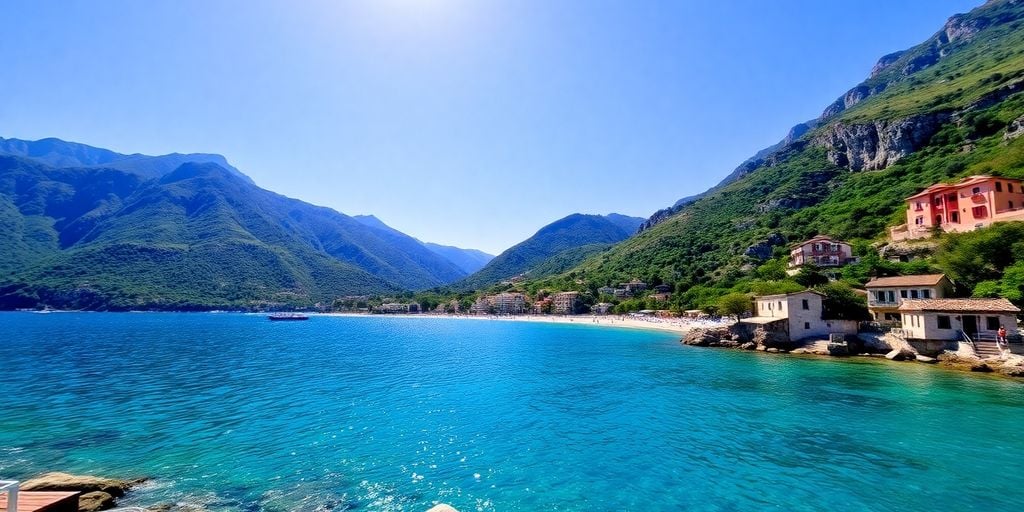Montenegro’s tourism sector is experiencing a complex period, marked by an increase in visitor numbers but a concerning decrease in the length of their stays. This trend, coupled with new tax regulations impacting hotels and infrastructure challenges, presents both opportunities and significant hurdles for the nation’s vital tourism industry.
Key Takeaways
- Montenegro saw a 6.3% rise in tourist arrivals in the first half of 2025, but overnight stays decreased by 5.4%.
- A VAT hike on hotel stays from 7% to 15% has led some hotels to reclassify as private accommodation to avoid the higher tax.
- Unregistered accommodation remains a significant issue, costing the state an estimated 86 million euros in 2025.
- Airport infrastructure, particularly Tivat Airport, needs urgent upgrades to accommodate growing demand.
Shifting Travel Patterns
In the first half of 2025, Montenegro welcomed 940,800 tourists, a 6.3% increase year-on-year. However, this growth was accompanied by a 5.4% drop in overnight stays, totaling 4.83 million. This suggests a trend towards shorter, more dynamic travel patterns. While collective accommodations like hotels and resorts saw a 4.2% rise in guests, their overnight stays slightly decreased. Conversely, other lodging types, including private rentals, experienced a 10% increase in guests but a more significant 7.9% fall in overnight stays. This divergence highlights a challenge for tourism officials aiming to maximize economic impact by encouraging longer stays and repeat visits.
Tax Burden and Hotel Reclassifications
A significant challenge emerged in early 2025 with a VAT increase on hotel stays from 7% to 15%. This has prompted around twenty hotels to de-register their hotel licenses and reclassify as private accommodation units. This move allows them to benefit from more favorable tax treatment, often avoiding VAT altogether if their annual turnover remains below 30,000 euros. This strategy, while legal, creates an uneven playing field for registered hotels and contributes to a decline in formal tourism revenues.
Unregistered Accommodation and Revenue Loss
The issue of unregistered accommodation exacerbates the problem. It is estimated that Montenegro lost approximately 86 million euros in 2025 due to unregistered private rentals, many of which are listed on international booking platforms. Weak monitoring and control mechanisms, coupled with inadequate punitive measures for non-compliance, further encourage this informal sector. This situation not only deprives the state of significant tax revenue but also impacts the overall quality and regulation of the tourism market.
Infrastructure and Future Growth
Montenegro’s tourism potential is undeniable, with its coastline, mountains, and culture attracting international visitors. However, the country’s airport infrastructure, particularly Tivat Airport, is struggling to keep pace with the growing demand. Upgrades and potential concessions are being discussed to enhance connectivity. Experts emphasize that open skies and expanded flight routes are crucial for unlocking further growth, drawing parallels with the success seen in other regional destinations. Addressing these infrastructure and regulatory challenges is key to ensuring Montenegro’s tourism sector can truly soar.
Sources
- Montenegro Emerges as a Growing Destination for International Travelers in 2025 Amid Shifts Toward Shorter,
More Dynamic Travel Patterns, Travel And Tour World. - Montenegro Tourism Faces Decline as Hotels Downgrade to Escape VAT Burden, Travel And Tour World.
- Montenegro’s Tourism Takes Off – If Its Airports Can Keep Pace, connectingregion.com.
- Checking browser…, Gazeta Express.






